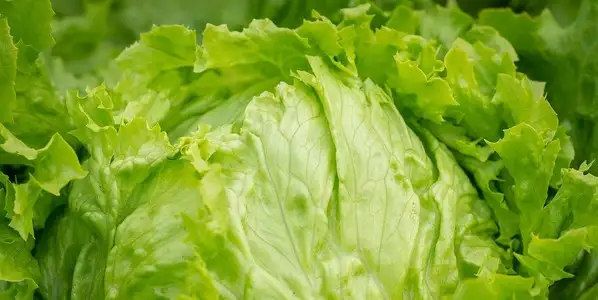
Iceberg lettuce is a common but controversial salad. Although it is a staple in many classic salads and sandwiches, it has also drawn criticism from nutrition-...
Read more


|
Nutrient |
Per 100 g | Per portion (54 g) |
|---|---|---|
|
Calorific value |
188 kJ | 101.52 kJ |
|
Energy |
44 kcal | 23.76 kcal |
|
Carbohydrates |
8 g | 4.32 g |
|
Protein |
0 g | 0 g |
|
Fat |
0 g | 0 g |
The food Apricot (fresh) is composed of the following macronutrients.
Apricots have a number of benefits as a food:
The apricot is a stone fruit that is widely grown in temperate climates. They are small and round, soft and juicy and have a sweet and sour taste. Apricots can be eaten raw, but are also a popular ingredient in cakes, jams, preserves and other baked goods.
Apricots usually ripen from June to August, but the exact harvest time depends on climatic conditions and variety.
What is the best way to store apricots?
Apricots should be stored at room temperature. They can also be stored in the refrigerator to maintain their freshness. It is also possible to freeze apricots to store them for later use.
What are the varieties of apricots?
There are numerous varieties of apricots that vary in size, color, flavor and ripening time. Some of the most popular varieties are: Blenheim, Royal, Tilton, Jade, Goldrich and Muganza.
Where do apricots come from?
Apricots originated in China and have been grown there for thousands of years. Throughout history, they have been brought to other parts of the world and are now found in many parts of the world, including Europe, North America and Australia.
How are they grown?
Apricots grow on trees that do well in a warm, sunny climate. The trees need plenty of water and good drainage to grow healthy. Apricot trees are usually planted in the spring and begin to fruit after a few years. The trees can then fruit for up to 20 years or more and need regular care to ensure a good crop. Apricots are usually grown in plantations, but can also be grown in gardens if conditions are suitable.
I love this app! The food is super varied and filling (and soo delicious!). With one purchase I have the ingredients for a whole week together, thanks to the shopping list. The ingredients are also readily available and not really expensive.
Nicole — App User
The first app in the field of nutrition tips that really convinces me. Updates get minor issues out of the way and new features are added all the time. Top!
Unknown user — App User
ave already tried many nutrition apps but here it is really great and you save a lot of time because you do not have to enter all the meals yourself! 👍👏
Mareen — App User
I don't usually rate apps but this one has to be rated.... I have never had such a great app just fits everything.... The nutrition plans are just absolutely awesome just everything is awesome many many thanks
Mareen — App User
This app is an excellent support for healthy eating even with little time and effort! Super recipes are also included. Highly recommended!
Lennert — App User